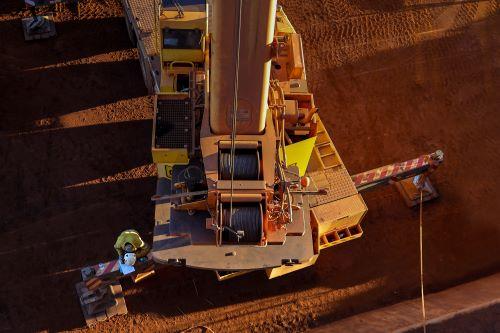
What Will I Learn in a Crane Operator Training Program?
Are you looking into crane operator school? It’s a great way for you to learn new skills, improve yourself, and supplement your income. If you’re considering attending a crane operator training program, it’s first important to do your research and learn what you can expect from such a program. While researching, look at what different certifications you can earn from each program. For instance, at West Coast Training, we offer the chance to earn up to nine different NCCCO certifications.
What is NCCCO and why are these certifications important? NCCCO stands for the National Commission for the Certification of Crane Operators. It’s a nonprofit that was created to develop and ensure effective performance standards that guarantee safe crane operation. NCCCO has a wide array of certifications, which is why it’s important to look into which certifications are offered by the crane operator training program you’re considering.
If you choose our crane operator training program, you’ll earn certifications for:
- Tower Crane Operator
- Boom Truck Fixed Cab Crane
- Fixed Cab Hydraulic Crane
- Swing Cab Hydraulic Crane
- Lattice Boom Truck Crane
- Lattice Boom Crawler Crane
- Service Truck Crane
- Rigger Level 1
- Signalperson
Not every graduate needs to becomes certified in all of these, but if you’re spending the time, energy, and money to become certified, why not get certified in more than just one? It’ll certainly increase your job opportunities.
Now that you know all this, it’s time to look into what you’ll learn in a crane operator training program.
Choose Between 4-Week Training or 8-Week Training
There are different training courses depending on what you want to study and how you’d like to focus your skills. West Coast Training offers both a four-week training and an eight-week training. The four-week training is a Mobile Crane Operator training that actually serves as the first half of the full eight-week Crane Operator/Rigger course. This four-week training, however, is just for mobile cranes. Depending on the course you choose, you may learn different things.
4-Week Training
After finishing this training, graduates will gain six NCCCO mobile crane operator certifications:
- Fixed Cab Hydraulic Crane
- Swing Cab Hydraulic Crane
- Lattice Boom Truck Crane
- Lattice Boom Crawler Crane
- Boom Truck Fixed Cab Crane
- Service Truck Crane
Participants in this training receive a total of 160 hours of training.
One important thing to note is that, in this training, you will only learn about rigging and signaling certification. You won’t be certified in them.
8-Week Training
If you want to go beyond learning about mobile cranes, the eight-week training is for you. In this program, students train to safely and competently operate cranes such as the hammerhead, luffing-jib, and self-erecting tower cranes, as well as hydraulic boom mobile cranes and lattice boom mobile cranes.
Whereas the four-week training will result in six certifications, the eight-week training will result in all nine certifications mentioned above. In addition to those, students will also go through a tower climbing fall-protection training.
Hands-On Training
Both our four-week and eight-week trainings not only include classroom learning, but also practical, hands-on training with West Coast Training’s own cranes. Our construction site mimics the conditions that exist in the workplace. Approximately 50 percent of students’ time is spent in the field on different tasks that include rigging, signaling, designed lifts, and smooth operating techniques. All of this is under the guidance and instruction of a certified instructor.
The classroom training is very important, as it includes learning ASME standards and OSHA regulations. Required reading and homework assignments are given daily.
NCCCO Testing
Both courses include NCCCO practical and written testing. There are no fees charged for the first written and practical NCCCO exams. However, if you fail the first time, you’ll need to pay a re-testing fee to retake the examinations that you had failed.
As you might expect, there’s a difference in the amount of testing needed. For the four-week course, the NCCCO exams include five written tests, which are taken the day after the course is completed. There are three practical certification tests as well, which take place on the last two days of the course.
For the eight-week course, students take seven written tests and five practical certification tests.
Other Supplement Courses
One training that neither of the courses includes is a CDL-A course. Holding one of these certificates is not required. However, it’s extremely beneficial, as you will then be able to move the equipment between jobsites, which is a great skill to add to your resume. Not only will you know how to operate it, but you can transport it to different jobsites too.
As you can see, there is a lot that you will learn in a crane operator training program. Each course is different and will result in a variety of NCCCO certificates in the end. One thing remains, though, and that is that you must attend an accredited crane operator training program to get the certifications you need to allow you to safely and competently operate the appropriate cranes.
The best training programs are a mix of classroom instruction and fieldwork, giving you a well-rounded experience to make sure you’re fully prepared. To become certified, you need to pass the appropriate written and practical exams. It’s ultimately up to you which NCCCO certifications you decide to train and test for, but if you have the option to have more than just one certification, that’s an important thing to consider and potentially take advantage of. It will open even more employment opportunities for you once you enter the professional field.
